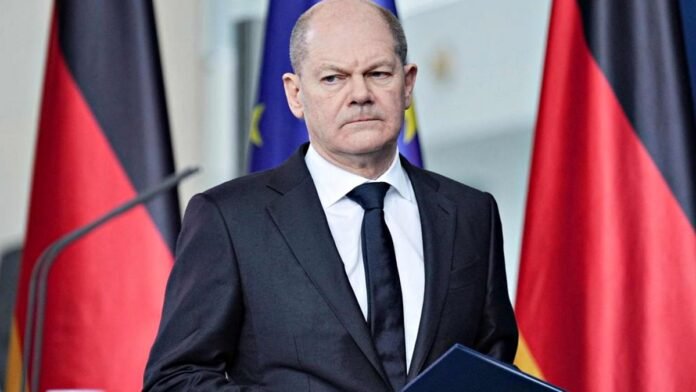
Berlin: In a dramatic turn of events, German Chancellor Olaf Scholz’s coalition government has crumbled as the right-wing Free Democratic Party (FDP) officially withdrew its support following the dismissal of Finance Minister Christian Lindner. The move marks the culmination of months of internal friction within the coalition and has triggered an intense political crisis in Germany, pushing the nation toward early elections amid economic and global instability.
FDP’s Departure and Cabinet Recall
The tipping point came when Scholz dismissed Lindner, the pro-business leader of the FDP, from his role as finance minister. In response, the FDP recalled its remaining ministers from Scholz’s cabinet, leaving the government without a majority. The FDP, holding a modest 4% of the vote share, had been a key partner in the coalition that included Scholz’s Social Democrats (SPD), the Greens, and traditionally conservative allies CDU/CSU. The FDP’s withdrawal reflects rising tensions within the coalition as disagreements over economic policy and cabinet management mounted.
Call for Early Elections: CDU/CSU Push for Urgency
Markus Söder, leader of the CDU’s Bavarian sister party, the CSU, has voiced strong demands for early elections, suggesting January as the most immediate timeframe. Scholz, however, aims to pursue a confidence vote in January, potentially setting the stage for an election in March if his minority government fails to secure the needed parliamentary support. The conservative opposition, meanwhile, is pressing to expedite the timeline, calling for a vote as early as next week to address Germany’s pressing leadership void.
Germany’s Economic and Political Crossroads
This political upheaval comes at a challenging time for Germany, as the country grapples with an economic downturn and broader geopolitical tensions. With the coalition fractured, the Greens remain the second-largest party in the three-way alliance, retaining their cabinet positions. Green Party leader and Economics Minister Robert Habeck has urged citizens to view the FDP’s exit as an opportunity for a “new beginning.” However, without a parliamentary majority, Scholz’s administration will need to secure ad-hoc support from other parties for each legislative vote, an approach that could lead to further instability.
President’s Position and Next Steps
German President Frank-Walter Steinmeier has signaled his willingness to respect parliamentary decisions, stating he will not interfere with Scholz’s intention to seek a confidence vote. If Scholz loses the vote, early elections will be imminent, allowing German voters to decide the country’s leadership in a pivotal moment.
Key Events Timeline
| Date | Event | Details |
|---|---|---|
| November 2024 | Coalition Fallout | FDP withdraws support following dismissal of Finance Minister Christian Lindner |
| January 2025 | Confidence Vote Planned | Scholz to seek a parliamentary confidence vote to retain minority government |
| March 2025 | Potential Early Election Date | New elections could take place if Scholz loses the confidence vote |

The developments signal a period of uncertainty as Germany faces a potential leadership change amidst pressing economic and global challenges. The looming elections could reshape Germany’s political landscape, testing its resilience and unity in the face of domestic and international pressures.






















































